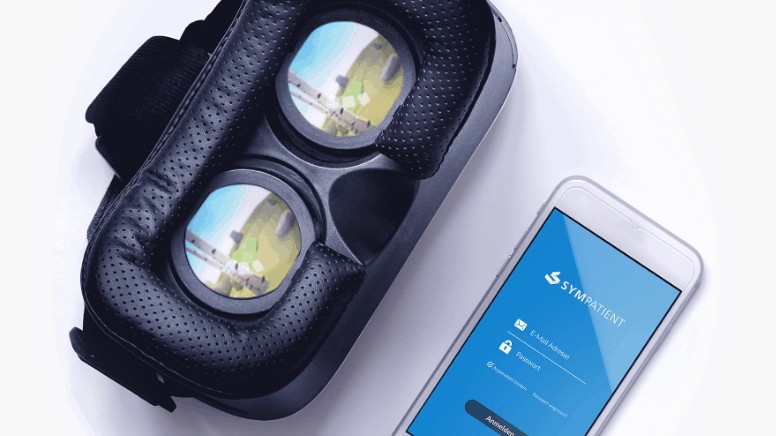Caroline Sai leads Angels Santé, Europe’s biggest health-focused business angel club. In this interview, she tells us which topics in health are hot right now, and which are not.

Manager, Angels Santé
Caroline Amblard-Sai is a board member of the European Business Angel Association (EBAN) and Manager of Angels Santé, a Paris-based Business Angel Club focused on health startups with about 150 members. She is also responsible for the EIT Health Investor Network. Caroline is of French-American background and after a degree in International business has gained extensive professional experience abroad.
How did you get involved with startups?
After working in Dubai for a few years, I came back to Paris and joined a healthcare startup. I helped them raise funds, as I already had a strong network of investors and experience in fundraising for NGOs while in South Africa. I quickly realized that sometimes startups don’t know how to approach investors. Once you’re in the startup world, you quickly meet a lot of people, and people hear about what you do. That’s how I got offered the job to manage Angels Santé.
What is the situation of health startups in France?
From a scientific point of view, France is a very strong home country with the second-highest number of patents in Europe and great research institutions such as CNRS [the French National Centre for Scientific Research], Inserm [the French National Institute of Health and Medical Research] and CEA [the French Alternative Energies and Atomic Energy Commission, which is also active in researching health technologies]. There is a well-established network of tech transfer offices called SATT that spans the whole country and helps get research out to the market. France is home to many successful biotech companies, and the pandemic accelerated the development of digital health startups.
How difficult is it for French startups to get funded?
The angel investor scene is quite developed, there are more than 60 business angel networks across France. We have about a dozen big venture capital firms focused on health, such as Sofinova or Andera. Compared to other European countries, there is also robust public support, not just on a regional, but also at a national level. What BPIFrance, the public bank for investment does in terms of investing in startups is pretty unique in Europe. This high level of public funding for startups has helped us develop a lot more startups than would otherwise have been possible. The government has launched the plan Innovation Santé 2030 intending to make France the most innovative country in matters of health. All in all, French health startups are in a very good position. As a promising French entrepreneur, it should be relatively easy to find the first funding.
What topics are tough to sell to investors?
In the biotech space, I’d say money mainly flows to new therapeutics while it is a bit more difficult for diagnostics and biomanufacturing companies. In ophthalmology, medical devices are a tougher sell than regenerative cell-based therapies. Anything related to the dental market is very difficult to finance. Here, and this is true in a more general way for many other topics, we have unmet medical needs, but the return expectations are simply not high enough to attract VC funding.
What are, on the other hand, hot topics right now?
There are a lot. Oncology is a prime example. Neurologic illnesses such as Parkinson’s and Alzheimer’s get a lot of attention as well, as do cell therapies. Digital health and especially the topic of mental health have gained a lot of recognition as important topics since the COVID-19 pandemic. But it is still very difficult for investors to identify startups that will capture this market. Many companies promise a lot, but lack data to support their claims. Reimbursement plays a key role in deciding which startups will rise above the fray. In France, patients expect the insurers to pay for health and will not spend out of their pocket.
I would like to encourage more investors to give investing in health startups a try.
Angels Santé has about 150 members across Europe. What is the background of a typical member?
About 80% have a background in healthcare, are either doctors or pharma executives. The other 20% are lawyers or M&A professionals. All of them are excited about healthcare innovation, of course. Our members’ average age of 56 is younger than that of other angel networks. At the same time, at that age, they have a lot of experience they want to share. Our health focus is pretty unique, there are only smaller such groups in Switzerland and Germany. I would like to encourage more investors to give investing in health startups a try.

Invest in Startups
As one of Europe’s most active venture capital investors, we grant qualified private investors access to top-tier European startups. With investments starting at EUR/CHF 10’000, you can build your own tailored portfolio over time and diversify across stages and sectors.
Some generalists shy away from this domain as it seems difficult to understand.
Health is a vast topic and not all of it is that complicated. Everyone understands how an insulin pen or a digital health app works. Granted, when we talk about cardiac valve implants it already gets a bit more complicated, and biotech is best left to the experts. But again, to become a business angel in this field, you don’t need to be a pro in, say, regulatory questions or clinical trials. If you have knowledge about how to build a team, how to set up a board, or how to access new markets, then those are also valuable skills you can bring to the table.
What is the current exit environment for health startups like?
We still see some exits, in biotech or digital health for example. Large medtech companies are in a difficult phase right now as they’re transitioning from MDD to MDR [a regulatory change across the EU that has important implications for all medtech companies, cf page 11 of our Medtech report]. Their product portfolios need to be recertified, which is an expensive and time-consuming process. They might not have the cash to buy startups at the moment. Other experts, however, say that many of these companies will slim down their product portfolio and hence be more attentive to bringing in new innovative products through acquisitions.
I saw that Angels Santé also invested in startups in the veterinary field. How attractive is this space?
There are a few startups, but the US has a lot more consumer spending on animal health, the most significant players are there and so are specialized VCs of which there are none in Europe. The space is broad though and includes anything from biotech for animals to Software-as-a-Service startups aimed at veterinarians. But to be honest, the investors in this field are predominantly veterinary professionals themselves.
Has the changing macroeconomic environment affected the investment behavior of your angels?
In total, we’re still investing at about the same pace, but we’ve become more selective and have seen bigger tickets in fewer deals. We had a few exits but also a few shutdowns, and these are always difficult to overcome.
How does a business angel overcome a total write-down of an investment?
You have to invest only the money you’re able to lose in the first place. We always preach that you need to build a diversified portfolio, because the more investments you have, the better the chances to have a big winner. And when you look at an investment, you need to consider the long term. Will this startup really be able to raise the funds they need? You need to say no to a lot of meaningful projects as well, this is the harsh reality of innovation. Take the example of a company developing a product for the handicapped, no matter if it’s canes or prosthetics. It can change lives, but it’s a small market. The company has the potential to grow into a nice small business, but that’s not what I call a startup, and if you invest, you don’t do it because of the returns, but because it comes from the heart. Unlike a VC, business angels can invest in a company just because they like the founders or the product without caring too much about exit multiples. But they can’t only do that, because otherwise, they’ll never get their money back to invest in the next generation of entrepreneurs. It’s a harsh world out there, even a brilliant doctor loses some patients and even a startup with a great team and product can fail. But that’s not a reason to stop doing what we do. It is pretty obvious that with an aging population and as a result, an increase in chronic diseases, the burden on the healthcare system will increase and innovation is paramount. This also means that with startups having an answer to these problems, money can and will be made.
Written by
WITH US, YOU CANCO-INVEST IN DEEP TECH STARTUPS

Verve's investor network
With annual investments of EUR 60-70 mio, we belong to the top 10% most active startup investors in Europe. We therefore get you into competitive financing rounds alongside other world-class venture capital funds.
We empower you to build your individual portfolio.
More News
25.08.2020
Why invest in startups?
The high expected returns are an important reason why people invest in startups, but that’s not the only reason.
14.02.2020
Digital Health: Startups and Listed Equities
Digital health is a topic that is gathering traction, both in the world of startups and listed equities. But what do companies in this field do? And what problems do they struggle with? This interview with two experts shows how technology changes the health sector.
03.02.2020
A world premiere in digital health
On the 29th of January 2020, the biggest German health insurance announced the launch of a novel anxiety therapy: Invirto. This premiere is a major milestone for the digital therapeutics startup Sympatient which is developing Invirto. Sympatient’s co-founder and managing director Christian Angern explains how this all came about.
Startups,Innovation andVenture Capital
Sign up to receive our weekly newsletter and learn about investing in technologies that are changing the world.




